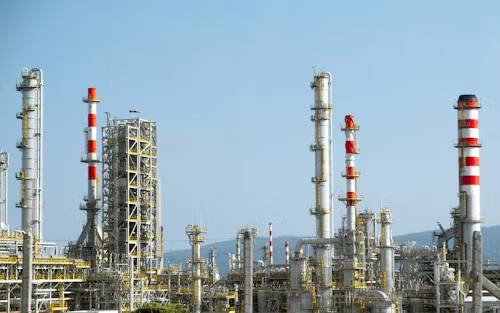Dangote Refinery, Africa’s largest refining project, has reportedly begun supplying petroleum products to West Africa. The tanker CL Jane Austen, discovered off the coast of Togo, is transporting more than 300,000 barrels of gasoline from the Lagos refinery, signalling the facility’s increased production capacity and ambition to reshape the regional fuel market.
The refinery, with a capacity of 650,000 barrels per day (bpd), is expected to disrupt oil supply markets in Africa and Europe, significantly reducing Nigeria’s reliance on fuel imports.
The refinery has also made progress in overcoming domestic market challenges. The Independent Petroleum Marketers Association of Nigeria (IPMAN), a key player in the Nigerian petroleum sector, recently reached an agreement with the refinery to purchase 60 million litres of Premium Motor Spirit (PMS) per week.
The agreement puts an end to the indifference previously shown by local traders, who Dangote blamed for importing dirty petroleum products from Malta rather than buying them from the refinery. The agreement with IPMAN aims to stabilize Nigeria’s fuel supply chain, which has long been plagued by inefficiencies.
The shipments off the coast of Togo are just the beginning of a potentially powerful export strategy. The waters off the coast of Lomé, a hub for ship-to-ship transfers (STS), suggest that gasoline could be redistributed to other African and even international markets. While the volumes shipped are small by global standards, they represent an important step in the refinery’s operating schedule. Analysts see this as a harbinger of increased export volumes that could disrupt regional fuel markets.
Neighbouring countries looking to reduce their reliance on far-flung suppliers would benefit from Dangote’s services.
Eight African countries, including Ghana, Benin, Togo and South Africa, have expressed interest in sourcing petroleum products from Dangote. Ghana in particular has explicitly highlighted the economic benefits of importing from Nigeria rather than Europe. Ghana’s top oil regulator, Mustapha Abdulhamid, said the move could reduce transportation costs, stabilize the market and ease pressure on foreign exchange markets.
“If the refinery reaches 650,000 bpd capacity, all that volume cannot be consumed by Nigeria alone,” Abdul-Hamid noted. “Instead of importing from Rotterdam, it will be much easier for us to import from Nigeria, which I believe will bring down our prices.”
The refinery is already making waves with its early sea shipments to Lagos and its dual focus supplying both domestic and international markets.
Breaking the Petrol Monopoly in Nigeria
Until recently, the Nigerian National Petroleum Company Limited (NNPCL) had a monopoly on purchasing refined products for the country. But with this monopoly gone, the refinery has a clear opportunity to supply both local and regional markets.
IPMAN’s agreement to purchase 60 million litres of PMS per week is indicative of this newfound market openness.
Despite being Africa’s leading oil producer, Nigeria has continued to import tall the fuel the ocountry uses due to the poor capacity of its local refineries. The $20 billion Dangote Refinery aims to close this gap, offering a sustainable solution to one of Nigeria’s most persistent economic challenges. As it scales up production, the refinery is expected, among other things, to save the country billions in foreign exchange and stabilize domestic prices.


